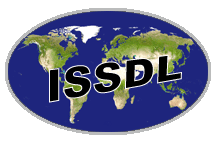SDL
- Lucy Guglielmino
- Mar 19, 2017
- 3 min read

Welcome to our new website and to the ISSDL blog! Lila Holt and Richard Durr are our webmasters, and they have done a great job. I was asked to write this first blog about why SDL is important to me, but (as always) I’ll end up talking about why it’s important to all of us.
I was always an eager learner, blessed with parents who asked questions in response to my questions, who had a “can-do” and “I can fix it” attitude when problems cropped up, and often stopped what they were doing to head for the bookshelves and the encyclopedias with me (our nearest local library in a rural setting in the pre-internet era). One of my fondest memories is of days when dinner was late because my mother and I were sitting on the living room floor with a dozen or more encyclopedias, National Geographics, and other books and magazines spread out around us, sharing the excitement of discovery.
Although I was a dutiful student and had some wonderful teachers and mentors, my formal educational experience had highs and lows. Inheriting a deep love of nature as well as an independent streak from both my parents, I felt I had found a long-lost kinsman when I read Thoreau’s Walden:
If a man does not keep pace with his companions, perhaps it is because he hears a different drummer. Let him step to the music which he hears, however measured or far away. (A great mantra for educators to keep in mind if they want to work with eager and inspired learners)
However, I often chafed at the humdrum rigidity of much of my formal educational experience. Was it really important or useful to memorize and regurgitate all of the provisions of a treaty, for example? So often learning became rote memory, far from the excitement and relevance of topics hotly pursued at home.
Formal education can be a stepping-stone to lifelong, self-directed learning —or it can be a stumbling block, creating resistance and avoidance. From my own experience in classrooms and more than 40 years as a facilitator of learning at various levels, it has become crystal-clear to me that learners who are invited to become involved in their own learning are engaged, excited learners. When they take ownership of their learning by choosing topics, setting learning goals, choosing methods and ways of monitoring their progress and evaluating learning outcomes, they soar—and they build valuable skills and attitudes that will serve them well throughout a lifetime of learning.
So, back to the original question: “Why is self-directed learning important to me?” Not only has self-directed learning become critical to avoid obsolescence in this age of exponentially expanding information and technology, research has shown readiness for self-directed learning to be consistently correlated with such things as creativity, flexibility, cross-cultural adaptability, emotional intelligence, resilience, conscientiousness, and life satisfaction. Many studies have also shown it to be correlated with workplace performance and academic achievement. Those facts make it important enough to me that I have spent a large part of the last 40 years of my life promoting it, and I’m not about to stop now! The International Society for Self-Directed Learning (ISSDL) exists to promote research and exemplary practice in self-directed learning around the world. Visit us often!
Lucy Madsen Guglielmino
Board Chair, ISSDL
A learner is not a vessel to be filled, but a fire to be lighted--Plutarch



















